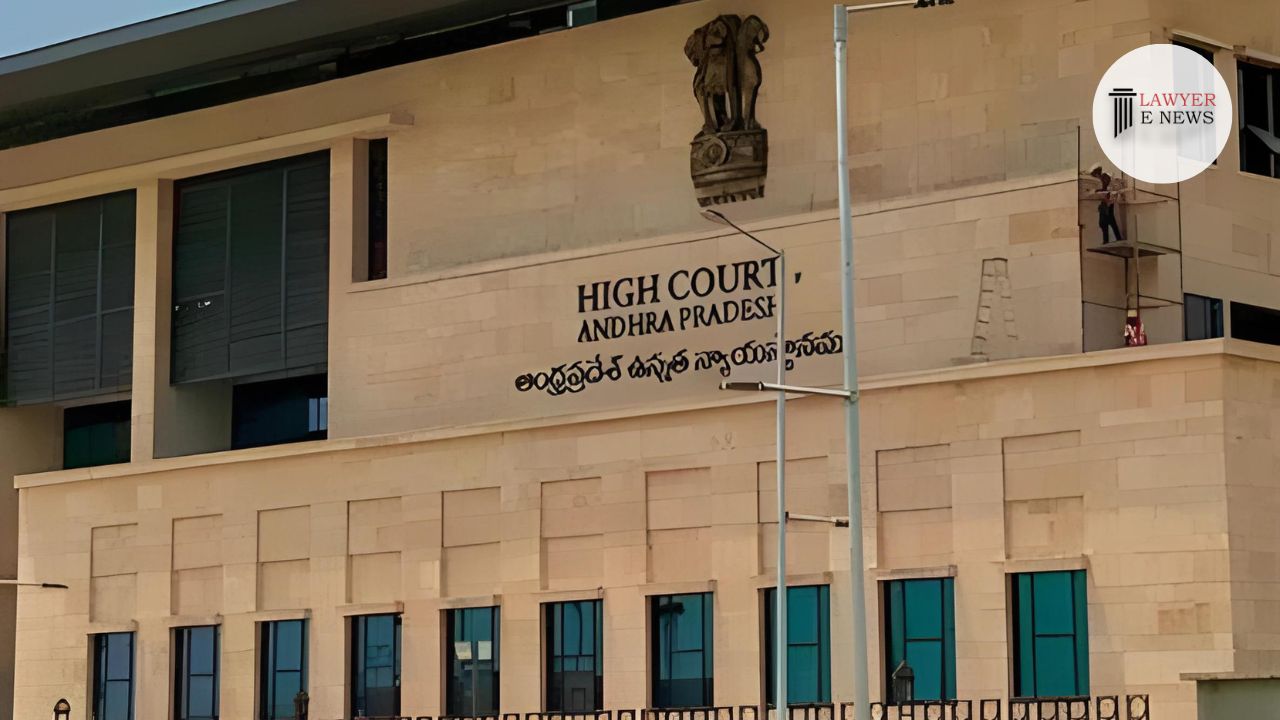-
by Admin
15 February 2026 5:35 AM



Andhra Pradesh High Court upholding the lower court’s decision to grant specific performance of a sale agreement. The court directed the appellants (defendants) to execute a registered sale deed in favor of the respondent (plaintiff), based on an agreement dated 5th January 1990. The appeal filed by the defendants was dismissed.
The dispute arose over the sale of a property leased by the first defendant, V. Venkata Subbamma, to the plaintiff's father in 1984. The plaintiff claimed that the first defendant had agreed to sell the property for Rs. 1,85,000, and an agreement of sale was executed on 5th January 1990. The plaintiff had paid the full consideration, including deductions for an advance and loans, and was in possession of the property since 1984.
However, the defendants, heirs of the deceased first defendant, contested the validity of the agreement, claiming it was fabricated. They argued that the property was worth far more than Rs. 1,85,000 and that the alleged agreement of sale was forged. The Subordinate Court of Nellore had ruled in favor of the plaintiff, prompting the defendants to file the present appeal.
The primary issue was whether the agreement of sale dated 5th January 1990 was genuine and enforceable, entitling the plaintiff to specific performance.
Execution of Sale Agreement: The court noted that the plaintiff produced oral and documentary evidence, including testimonies from two attestors (P.W.2 and P.W.3) and the scribe (P.W.4) of the agreement. Their consistent testimonies supported the claim that the agreement was genuine and executed in the presence of witnesses.
Possession and Consideration: The court acknowledged that the plaintiff had been in possession of the property since 1984, and the entire sale consideration had been paid to the first defendant. The evidence showed that the plaintiff had continued to occupy and make improvements to the property, and no action had been taken by the defendants to challenge this.
Forgery Allegations: The defendants’ claim that the agreement was fabricated was unsupported by evidence. The court dismissed their petition to send the document for handwriting examination, noting that the trial court had already addressed and dismissed this request.
Readiness and Willingness: The court emphasized that the plaintiff had consistently demonstrated his readiness and willingness to perform his part of the contract, fulfilling the legal requirement for specific performance.
Justice Gopala Krishna Rao upheld the lower court's ruling, concluding that the agreement of sale was valid and binding. The court observed:
"The plaintiff discharged his burden by producing sufficient oral and documentary evidence, while the defendants failed to provide any convincing evidence to rebut the plaintiff’s case."
The court dismissed the appeal, ordering the defendants to execute a registered sale deed in favor of the plaintiff within two months. If the defendants failed to comply, the plaintiff was given the liberty to take necessary legal steps to enforce the decree.
This judgment reaffirms the principles of specific performance in contract law, emphasizing that plaintiffs who demonstrate readiness and willingness, coupled with sufficient evidence of the agreement, are entitled to relief. The court’s ruling also highlights that unfounded allegations of forgery without supporting evidence will not suffice to overturn valid agreements.
Date of Decision: 15th October 2024
V. Udayabhaskar & Ors. vs. M. Obul Reddy & Ors.
